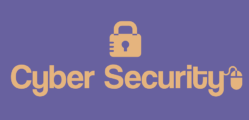Just like business data is the lifeline of every company, it is also the lifeline of hackers. It’s why they never give up on launching sophisticated attacks to gain a foothold within IT networks of companies. Reports show that you have a 1 in 4 chance of falling victim to a data breach, and recovering from a cybersecurity mishap like this can take millions of dollars.
With so much at stake, it is no surprise that network security is a hot topic right now. Thankfully, taking certain precautionary security measures can decrease your chance of getting your company’s IT network compromised.
4 Best Practices To Secure Your Network
1. Shield your network with strong defenses
From mobiles to laptops, in a typical organization there are hundreds of devices being used to access your company’s network. This means there are hundreds of opportunities for your network to get compromised. What’s the fix? Strong defense strategies such as using appropriate firewalls, installing software and systems to detect threats, securing Wi-Fi networks with strong credentials and encryption, adopting stricter privileged access management that ensures that only certain people have access to certain data. Lastly, it is worth considering penetration testing for your business, like the one by Fidus Information Security, conducted to always be aware of any security vulnerabilities in your ecosystem.
2. Educate your employees
Up to 90% of cyberattacks can be attributed to human errors, whether it is from carelessly clicking on infected links or opening questionable attachments. Uninformed employees can easily fall for phishing scams, which essentially means handing the keys to your entire IT infrastructure to a malicious hacker. The key to diminish this risk of hackers using your employees as pawns to infect your system is encouraging cyber literacy. Train your employees to spot phishing attempts, advise them to use stronger passwords, and have them adhere to established “safe browsing” practices when browsing the internet, social media and emails.
3. Use Anti-Virus and Anti-Spyware
Hackers are constantly looking for ways to steal data, and credentials to gain entry into your company’s network. While these anti-virus and malware protection software aren’t the end-all-be-all solution to stopping cybercrimes, these do make for a powerful first line of defense and should never be ignored. These software works by detecting risky, and possibly infected, content. It also detects viruses, trojans and other malware that may be already existing in your network. Having a reputable anti-virus and malware protection installed on all the devices used within your company’s perimeter is the easiest way to safeguard the integrity of your network.
4. Consistently update software
Updates can seem like a nuisance, but they are very critical to the health of a network. To gain access into your organization’s cyber infrastructure, hackers look for security flaws present in software or operating systems that are part of your network. Updates contain patches, which are a set of changes that improve or fix the usability and performance of a program. So by regularly updating software and operating systems to its latest version, you ensure that these security vulnerabilities don’t exist.
When it comes to network security, the old axiom, “an ounce of prevention is worth a pound of cure” stands true. People, technology and processes—always assess and optimize how these three factors interact with your network.
Since your network is the backbone of your company, security measures should always be your top priority.



Leave a Reply